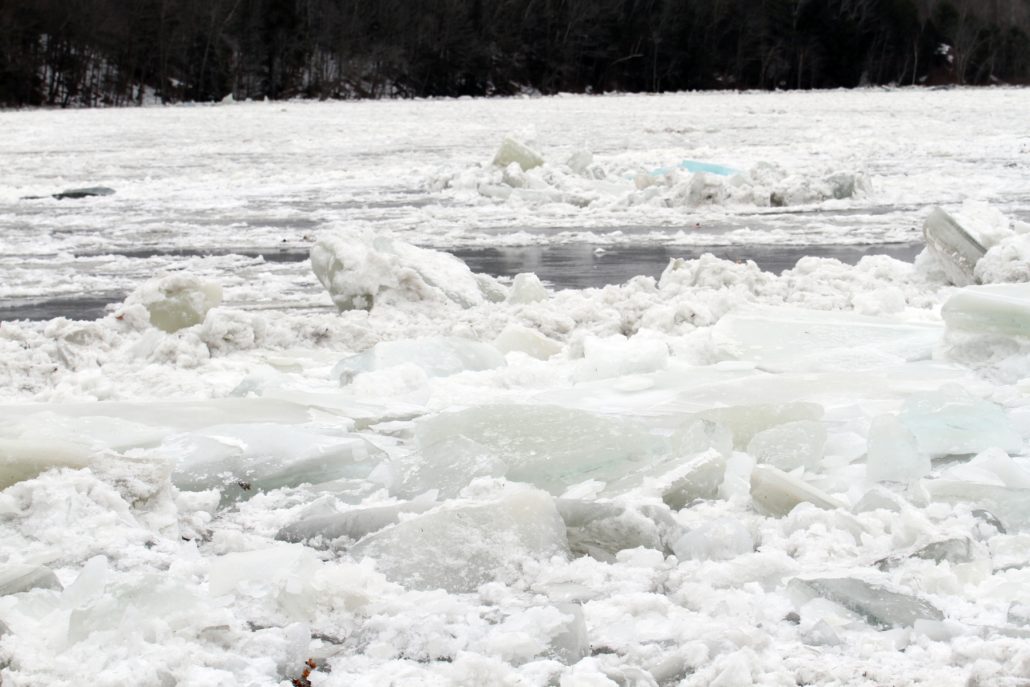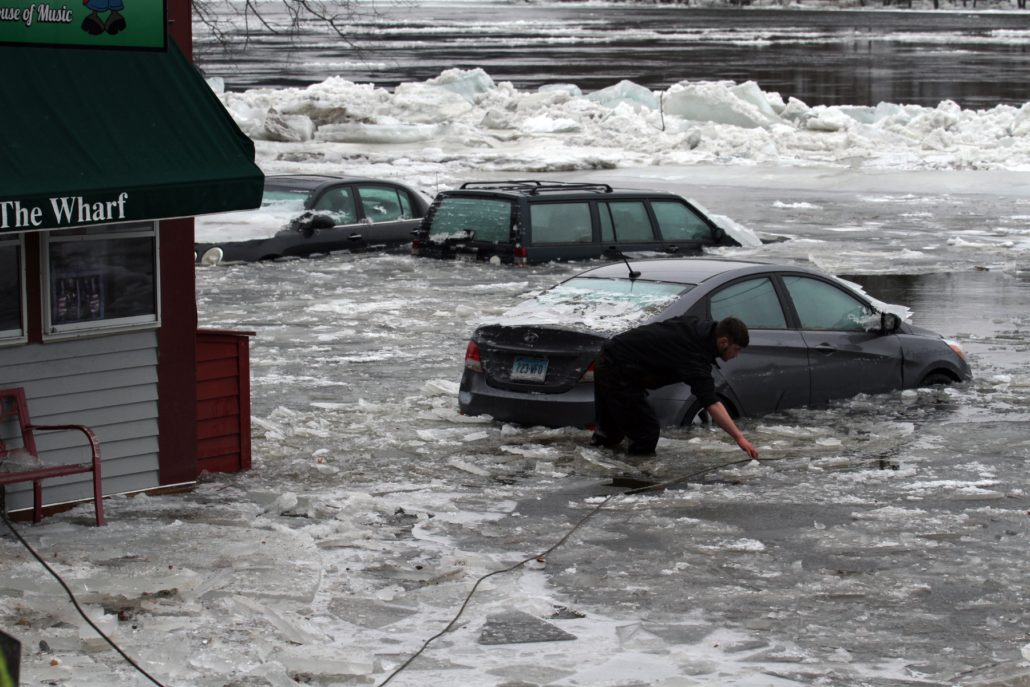Senior College forum to hear about Real or Fake News
/0 Comments/in Augusta, Community/by Website Editor
The University of Maine at Augusta College of Arts and Sciences and the University of Maine at Augusta Senior College has announced the next Forum on the Future entitled News, Real or Fake? The program will be at Jewett Hall on the university campus on Sunday, January 28, from 2 – 4 p.m. A snow date is scheduled for February 4. There will be a panel presentation with a refreshment break, followed by a question and answer period. Forums are the presentation of the variety of ideas on a subject, and are not intended for debate.

Jessica Lowell
The January forum will be introduced and moderated by Marilyn Canavan, of Waterville, a former state legislator and a retired Director of the State Ethics Committee.
Today, we are hearing repeated accusations of news items being real or fake, and many are confused about how these terms are used and when they are accurate.

Mal Leary
Also participating will be Mal Leary, political correspondent for Maine Public, Bill Nemitz, columnist for Maine Today, and Jessica Lowell, journalist with the Kennebec Journal.
Leary is the winner of many awards, he reports regularly on state government and politics. He is a native Mainer, and lifelong journalist.

Bill Nemitz
Nemitz is an experienced wartime correspondent, having followed our troops three times to Iraq, and twice to Afghanistan. In fact, in 2004, he was cited a Maine Journalist of the Year by the Maine Press Association.
Lowell has won awards for investigatory and explanatory journalism.
AUGUSTA: Kennebec Historical Society to hear Joey Kelley
/0 Comments/in Augusta, Community/by Website EditorCome for a ride through 150 years of history in Waldo County. Chartered in 1867, the Belfast and Moosehead Lake Railroad has survived two world wars, the construction of highways, the collapse of the poultry industry in Waldo County and survives today as a tourist railroad and historic relic of days gone by. This presentation by author and railroad historian Joey Kelley outlines the history of this unique railroad and gives you a summary of his book on the subject – the very first book ever written on the Belfast and Moosehead Lake Railroad.
The speaker, Joseph T. “Joey” Kelley, is a railroad historian, photographer and volunteer with the Brooks Preservation Society. He has been involved with the Belfast and Moosehead Lake Railroad on and off since 2004 and was once a paid employee of the Belfast and Moosehead Lake Railroad Preservation Society. His other passions include photography, motorcycles and restoring antique equipment.
The Kennebec Historical Society January Presentation is co-sponsored by the Maine State Library and free to the public (donations gladly accepted) and will take place on Wednesday, January 17, 2018, at 6:30 p.m. at the Maine State Library, located at 230 State Street, in Augusta.
Leyna Tobey graduates from Merrimack College
/0 Comments/in Augusta/by Website EditorLeyna Tobey, of Augusta, recently graduated from Merrimack College, in North Andover, Massachusetts, during the 67th commencement exercises on May 21. Tobey received a bachelor of science degree in civil engineering.
Anne Guadalupi one of 60 students inducted into Assumption College honors program
/0 Comments/in Augusta, Community/by Website EditorThe Assumption College Honors Program, in Worcester, Massachusetts, inducted 60 new members from the class of 2021 to its honors program, including Anne Guadalupi, of Augusta, on October 29, before an audience of administrators, faculty, and families.
Guadalupi named to the Assumption College women’s cross country team
/0 Comments/in Augusta, Community/by Website EditorThe Assumption College Department of Athletics, in Worcester, Massachusetts, has announced that Anne Guadalupi, of Augusta, has earned a coveted spot on the 2017 Assumption College Women’s Cross Country team. Guadalupi, Class of 2021, is competing during the Greyhounds’ fall season, which began with the Shacklette Invitational at Saint Anselm College, on September 2.
Ducks Unlimited’s Kennebec chapter to host annual fundraiser
/0 Comments/in Augusta, Community/by Website Editor
Image credit: Ducks Unlimited (ducks.org)
On Saturday, October 21, Ducks Unlimited Kennebec Valley Chapter will host its annual fundraiser. The festivities will kick off at 5:30 p.m. with a dinner at 7 p.m., at Le Club Calumet, on West River Road, in Augusta. Tickets are available by contacting Barry Mower at 207-623-2758 or George Diplock at 207-623-2947.
Raffles, live and silent auctions will go on all night with multiple gun raffles all to be drawn that night. Collectible artwork, decoys, sculpture, and waterfowl-related items will be offered as well as the works of many local artists.
“We like to see new faces at our events along with many current members,” said DU’s Senior Regional Director Bill Brown. “This particular chapter was ranked among the top 5 in the state of Maine in 2016 and really knows how to host a banquet. It’s a great place for the general public to learn about the conservation work Ducks Unlimited conducts (not only in the U.S., but also in Canada and Mexico) while mingling with a great group of people.”
UPDATED INFO: Kennebec Historical Society’s September presentation
/0 Comments/in Augusta, News/by Website EditorCORRECTION
Information regarding the Kennebec Historical Society’s September presentation was inadvertently omitted from last week’s issue. (Read the original story here!)
The Kennebec Historical Society September presentation is co-sponsored by the Maine State Library and free to the public (donations accepted). The presentation will take place on Wednesday, September 20, at 6:30 p.m., at the Maine State Library, 230 State St., Augusta. The program will be preceded at 4:30 p.m. by a potluck supper and at 6 p.m by the society’s annual meeting, and election of officers and directors.
This month’s program is John H. Twomey, who will speak about his recent book, Retiring To, Not From, – From Massachusetts Professor to Maine Farmer.
Petersen earns degree from University of Vermont
/0 Comments/in Augusta, Community/by Website EditorMelissa Petersen of Augusta, graduated with a bachelor of arts degree in anthropology during commencement ceremonies on May 21, 2017, at the University of Vermont, in Burlington, Vermont.
Kennebec Historical society monthly meeting
/0 Comments/in Augusta, Community/by Website EditorThe Union Meeting House is on the National Register of Historic Places primarily because of the famous well preserved trompe l’oeil murals by Charles Schumacher, of Portland, done in 1866-68. The building was built in 1827-28 and is said to be one of the oldest brick churches in Maine. The presentation will focus on the murals and discuss steps being taken to preserve this historic, artistic and cultural landmark.
The speaker, Marius B. Peladeau, is the president of the Union Meeting House, director emeritus of the Farnsworth Art Museum, former executive director of the Theater at Monmouth, former exhibition curator at the L.C. Bates Museum, in Hinckley, former director of the Maine League of Historical Societies and Museums. He was an accredited White House correspondent and press secretary to a U.S. Congressman. Marius also holds B.A., M.S., and M.A. degrees and is the author of six books on art, history and culture.
The Kennebec Historical Society August Presentation is co-sponsored by the Lithgow Public Library and free to the public (donations gladly accepted). The presentation will take place on Wednesday, August 16, at 6:30 p.m., at the Lithgow Public Library, located at 45 Winthrop Street in Augusta.
Interesting links
Here are some interesting links for you! Enjoy your stay :)Site Map
- Issue for July 10, 2025
- Issue for July 3, 2025
- Issue for June 26, 2025
- Issue for June 19, 2025
- Issue for June 12, 2025
- Issue for June 5, 2025
- Issue for May 29, 2025
- Issue for May 22, 2025
- Issue for May 15, 2025
- Issue for May 8, 2025
- Issue for May 1, 2025
- Issue for April 24, 2025
- Issue for April 17, 2025
- Issue for April 10, 2025
- Issue for April 3, 2025
- Issue for March 27, 2025
- Issue for March 20, 2025
- Issue for March 13, 2025
- Issue for March 6, 2025
- Issue for February 27, 2025
- Issue for February 20, 2025
- Issue for February 13, 2025
- Issue for February 6, 2025
- Issue for January 30, 2025
- Issue for January 23, 2025
- Issue for January 16, 2025
- Issue for January 9, 2025
- Issue for January 2, 2025
- Sections
- Our Town’s Services
- Classifieds
- About Us
- Original Columnists
- Community Commentary
- The Best View
- Eric’s Tech Talk
- The Frugal Mainer
- Garden Works
- Give Us Your Best Shot!
- Growing Your Business
- INside the OUTside
- I’m Just Curious
- Maine Memories
- Mary Grow’s community reporting
- Messing About in the Maine Woods
- The Money Minute
- Pages in Time
- Review Potpourri
- Scores & Outdoors
- Small Space Gardening
- Student Writers’ Program
- Solon & Beyond
- Tim’s Tunes
- Veterans Corner
- Donate




